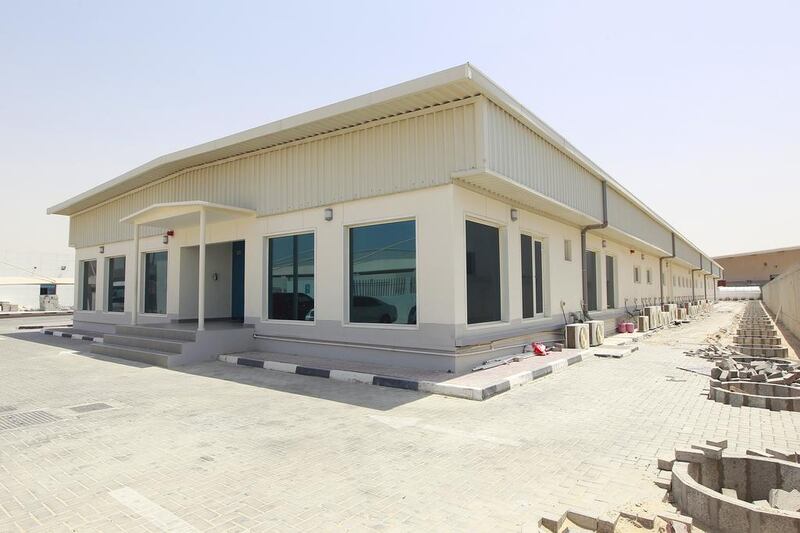DUBAI // A building made entirely out of shipping containers might not sound like the most glamorous place to work, but staff at a unique new office will tell you it is certainly one of the coolest.
In fact, the interior of the new regional headquarters of cargo-inspection company Geochem, which is built from 42 shipping containers welded together, is chilled to almost subzero temperatures.
That’s because of to a careful process of insulation and fittings undertaken by Dubai company Smartbox, to convert scores of unlovable corrugated steel boxes into habitable offices and meeting rooms.
“From the outside, you would never know it was made out of shipping containers,” said Arjun Menon, managing director of Smartbox.
“From the inside, you can do anything you would like. If I had the budget, I could make one of our rooms look like the Burj Al Arab.”
The container architecture movement emerged in North America and Europe in the early 1990s, and took off in 2000 with the launch of Container City in London’s Docklands.
Although Smartbox has been operating in some form since 1997, the Geochem office in TechnoPark is the region’s first permanent building made of shipping containers.
It is unlikely to be its last.
Part of the challenge has been finding a partner willing to go through a long and complicated process to obtain approval from Dubai Municipality.
It took more than six months, and dozens of queries and presentations, for planning officials to understand the feasibility of the project.
“Now that we have approval for this, and the municipality understands how these buildings work, we can go ahead with more projects and it will be easier next time around,” said Mr Menon.
The company already has plans to start work this year on an even larger, two-storey office building for Dubai Design District, a new development by Tecom taking shape near Dubai Mall.
The building will have inverted shipping containers as wind towers, which will mimic traditional Arab design.
Also in the pipeline is a residential apartment block by Mr Menon’s own company, High Cube, which will also probably break ground midway next year.
That apartment building, modelled after Container City, would be eight floors high. Mr Menon said it was structurally possible despite sections of the container being cut away for doors and windows, because the load-bearing points are on the corners of each box.
The company is considering dozens of other ideas, from public toilets at bus stops to affordable accommodation for the Expo 2020 site.
“These containers have the potential to completely revolutionise the city,” said Mr Menon.
One of the benefits is that a building can be fabricated in a couple of months and welded together on site in four to five days.
The business grew out of a container repair yard in Al Quoz by parent firm IAL Logistics.
These days the containers are bought second hand, for about Dh6,500 and after being insulated, decorated and then fitted with electrics and pipes, are sold for between Dh20,000 and Dh75,000 for a 20-foot container.
While they are generally more expensive than portable cabins, they are much stronger. They are typically about 30 per cent cheaper than brick and mortar alternatives.
The company has plans to drive down costs further by setting up a factory assembly line in TechnoPark.
The fact that buildings are made of cuboid blocks means there is an element of play involved when designing new buildings, said Mr Menon. “It’s just like Lego, except the pieces are 20 foot and 40 foot long,” he said.
mcroucher@thenational.ae





